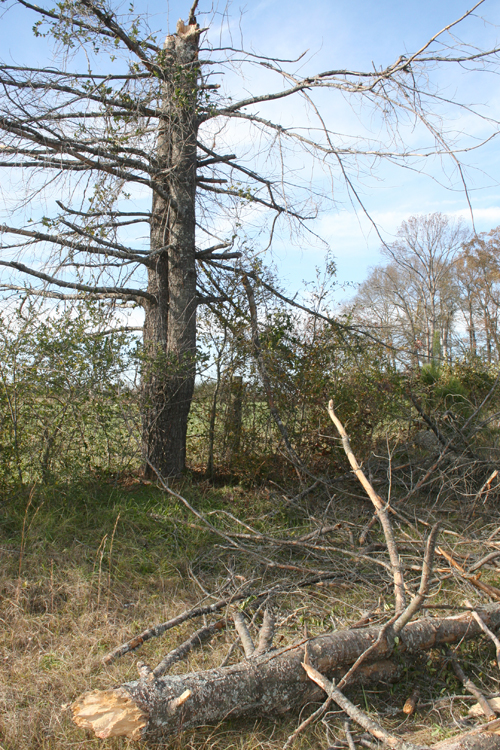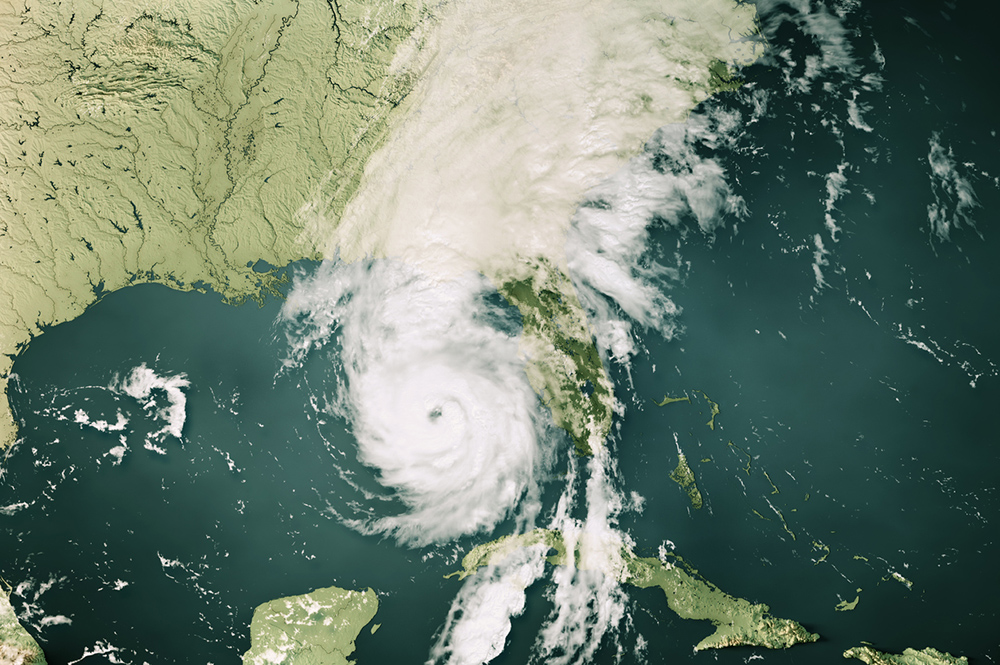Heavy winds whipped across central Georgia Dec. 8, waking homeowners and leaving downed trees and limbs behind.
Strong weather is common in Georgia, and so is cleaning up after it. But there’s a way to do it safely and wisely, say University of Georgia Cooperative Extension expert.
“Prioritize your chores by starting to work on trees that endanger buildings and fences first,” said Henry Hibbs, the UGA Extension coordinator in Oconee County.
Don’t attempt to handle trees that overhang or touch power lines, he said. Call local utility company professionals for assistance in removing these trees.
“Large trees that have been uprooted have little chance of surviving because the broken roots that used to structurally support the top weight and nourishment of the tree are damaged,” Hibbs said. “A chain saw and a camp fire may be the appropriate future for these trees.”
Tackle unsightly, damaged trees next.
For example, Bradford pear trees are prone to split. “This type of injury is difficult to reshape,” he said. “And the lopsided weight can cause the tree to blow over with soft wet ground and a gusty wind.”
Hibbs recommends removing severely misshapen trees and replanting a tree with better structure.
Broken limbs that are still attached to tree crowns should be properly trimmed. Leave a pruning cut that is flush to the next larger limb or main trunk. There is no need to apply wound tar to the prune cut.
“It has been shown through research that wound treatments like this can actually slow down the healing process of the tree,” he said.
Small trees that are bent over and have not straightened back up can be propped and then braced or cabled.
“A spindly pine tree that is bent over to the ground most likely will not stand straight again,” Hibbs said. “If the damage is severe, and over one third of the bark is lost, this is damage few trees can survive.”
Hibbs suggests using Mother Nature’s windy visit as a time to review your home’s landscape.
“You may have to crank up the chainsaw for the removal of an old favorite tree, but take this opportunity to consider carefully the next tree and select one that has a stronger design,” he said. “Red and sugar maples, as well as most varieties of oak trees, are sturdier tree variety selections.”








